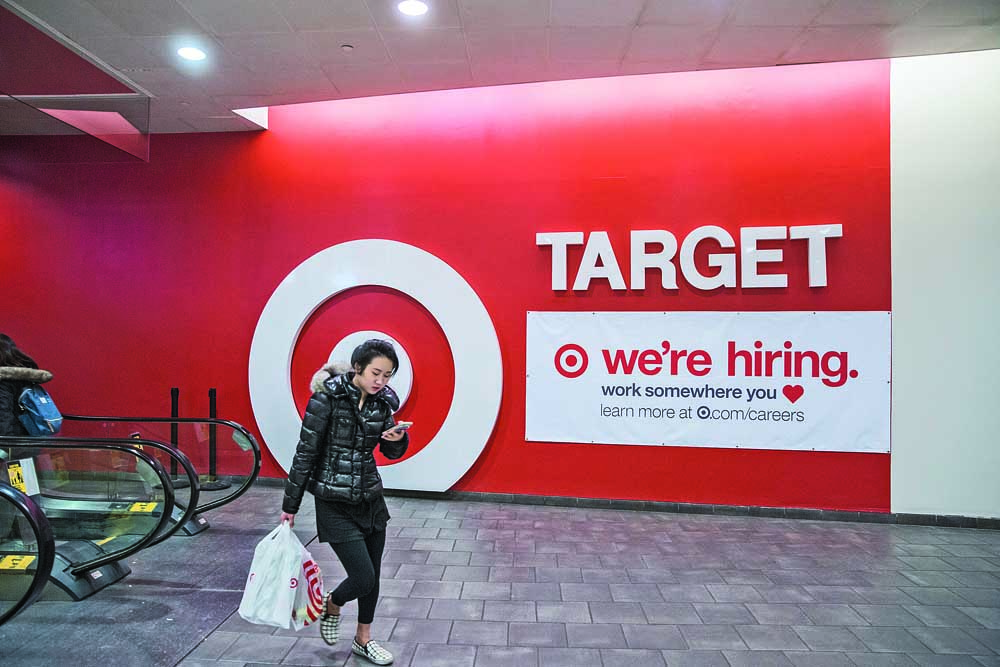Target to review screening of job applicants
Published 12:00 am Friday, April 6, 2018

- A sign advertises hiring at a Target store in New York in 2017. As part of the proposed settlement of the suit, Target agreed to institute a priority hiring process so that certain people who had been turned away could get jobs. (Mark Abramson/The New York Times)
Target agreed Thursday to revise guidelines for how it screens people seeking jobs at its stores, a step meant to quell complaints that the retailer discriminates against black and Hispanic applicants with criminal records that can include offenses too minor or old to affect their performance as employees.
The move comes in a labor market so tight that companies are hiring applicants they would not have considered before, including people who have criminal records or, in some cases, are incarcerated.
Those pressing the complaints against Target said the agreement announced Thursday would create even more opportunities for fresh starts.
“Target’s background check policy was out of step with best practices and harmful to many qualified applicants who deserved a fair shot at a good job,” Sherrilyn Ifill, president and director-counsel at the NAACP Legal Defense and Education Fund, said.
The agreement addresses a series of complaints filed with the Equal Employment Opportunity Commission by Carnella Times, who said Target declined to hire her after running a background check in 2006.
It also seeks to resolve a potential class action filed in U.S. District Court in New York City on Thursday by the legal defense fund and other lawyers representing Times; the Fortune Society, which works on behalf of former prisoners; and another job applicant. The settlement requires a judge’s approval.
The settlement calls for Target, which acknowledged no wrongdoing, to work with experts to adopt “valid” guidelines for how it uses criminal records in hiring and to finance a modest settlement fund. The company said it would still use background checks, but would bring in outside experts to review how the checks are used and would evaluate any recommended changes.
Jenna Reck, a Target spokeswoman, said the company had made significant changes to its screening process in recent years — for instance, removing a criminal history question from job applications.
She wrote in an email that when hiring, Target tried “to give everyone access to the same opportunities.”
At issue was the company’s practice of conducting criminal background checks on anyone applying for hourly and entry-level jobs in the United States.
African-Americans and Hispanics are arrested and convicted at rates more than double those of whites, according to the suit, which said Target’s hiring process “systematically” eliminated thousands of qualified applicants regardless of their potential to be good employees by requiring the automatic rejection of people convicted of offenses that could include violence, theft, fraud or drugs within the seven years of their applications.
Complaints about background checks in retail-sector hiring are not unique to Target.
Last year, the Fortune Society filed complaints with the EEOC against Macy’s Inc., and a subsidiary, Bloomingdale’s, accusing them of refusing to hire or retain people with criminal histories. A group of former Amazon delivery drivers in Massachusetts filed similar complaints, saying they had been unfairly fired because of an overly strict background check policy that disproportionately disqualified black and Hispanic workers, according to an article in The Boston Globe.






